Hell and high water on UK coast
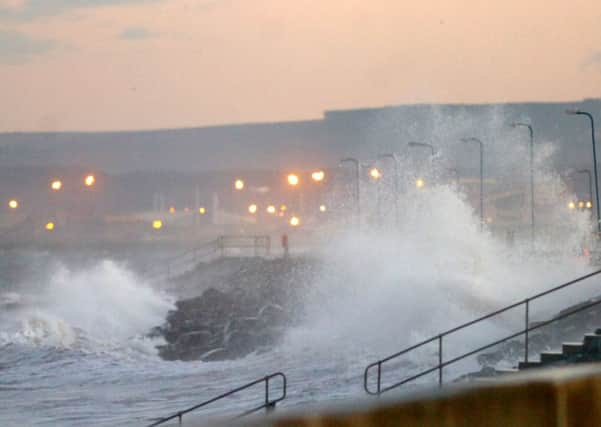

Across the country, more than 100,000 properties were hit by power cuts as winds of up to 140mph battered overhead lines.
Emergency services were forced to deal with a catalogue of incidents, while transport was badly disrupted.
Advertisement
Hide AdAdvertisement
Hide AdA man riding a mobility scooter was pronounced dead at the scene after he was struck by a falling tree in Kings’ Park in Retford, Nottinghamshire.
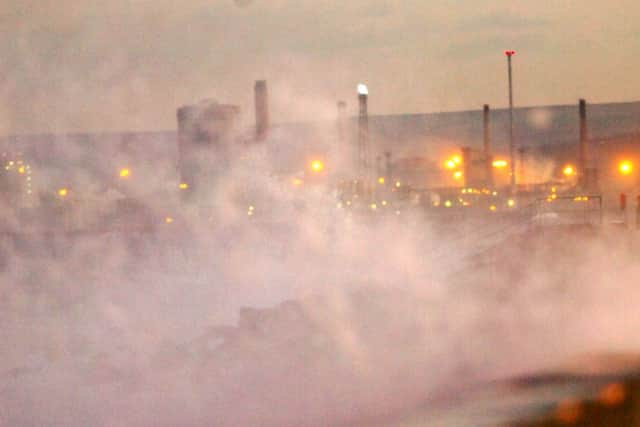

The park was closed following the incident.
In Scotland, a lorry driver was killed when his lorry toppled on to a number of cars.
Four other people were injured when the lorry overturned at Bathgate in West Lothian.
Rail, air and road travel was badly affected as the storm also hit parts of the Continent.
Advertisement
Hide AdAdvertisement
Hide Ad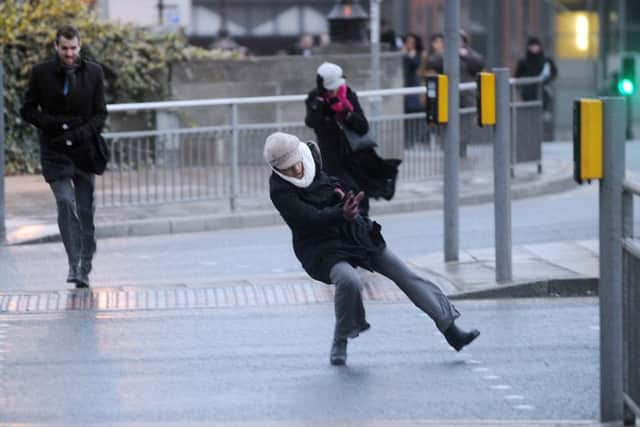

The entire rail network in Scotland was suspended, with trains halted at their nearest stations and passengers told to disembark after Network Rail said debris on lines and damage to equipment meant it was not safe to operate any trains, although services were slowly returning throughout the day.
At one stage, 130,000 homes were without power in Scotland, mainly in the Highlands.
One flight from London to Glasgow was forced to abort attempts to land in both Glasgow and Edinburgh and instead flew to Manchester.
As the plane neared Scotland, “suddenly everything started shaking and bumping, we were going up and down, up and down,” said passenger Hazel Bedford.
Advertisement
Hide AdAdvertisement
Hide Ad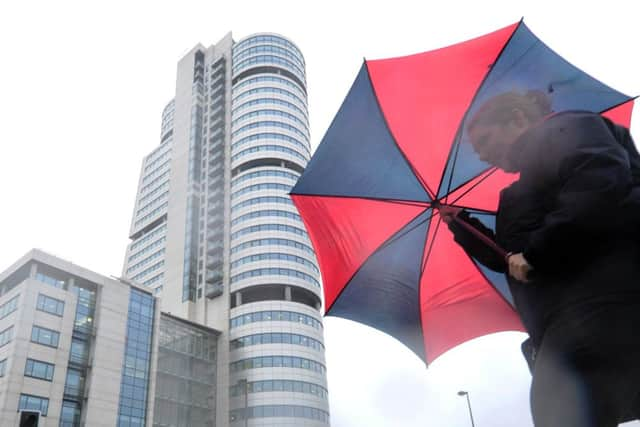

“An awful lot of people were being sick, but on the plane it was incredibly quiet.
“When cabin crew said ‘We’re going to Manchester’, people started to realise this was serious,” she added.
But concerns were last night focused on a storm surge in the North Sea after flooding badly hit parts of the Irish Sea coast from Cumbria to Cheshire and North Wales, with fears that high tides today will also cause problems.
Dozens of severe flood warnings were last night in place, mainly in coastal communities.
Advertisement
Hide AdAdvertisement
Hide Ad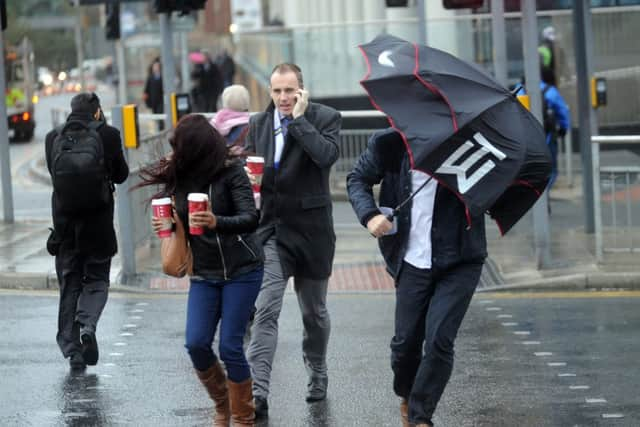

The Government’s emergency Cobra committee met twice yesterday to discuss the scale of the problems as Environment Agency chiefs warned the scale of flooding could equal that of the 1953 storm surge disaster.
Environment Secretary Owen Paterson said: “Local agencies are already implementing their contingency plans.
“Clearly our priority is public safety and I urge people to act on the advice from the Environment Agency, police and local agencies.”
John Curtin, the Environment Agency’s head of incident management, said: “Our teams have been out in force checking that flood defences and barriers are in good working order, monitoring sea levels and issuing flood warnings.
Advertisement
Hide AdAdvertisement
Hide Ad“Coastal paths and promenades will be highly dangerous as there is an increased risk of people being swept out to sea.”
The Met Office said the Atlantic storm had brought severe gales of between 60mph and 80mph across Scotland and northern parts of England, and some mountainous regions in Aberdeenshire and Inverness-shire speeds of around 140mph were reported.
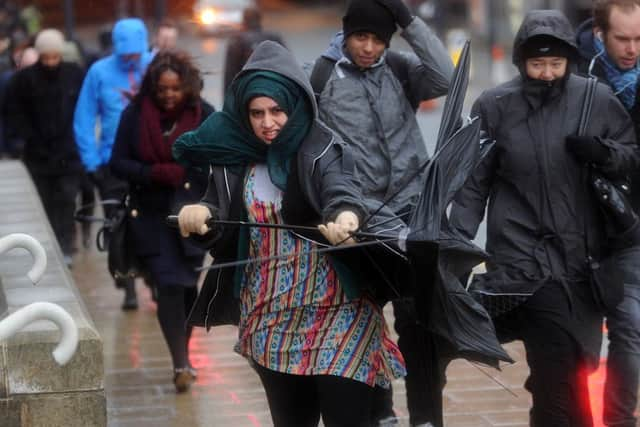

The strong gusts led to 100,000 properties being affected by power outages, Northern Powergrid said.
Chiefs at the Environment Agency said that defences built since the 1953 flooding disaster meant that many parts of the country were much better protected.
Advertisement
Hide AdAdvertisement
Hide AdHowever, some coastal flood defences could be “overtopped” by the combined effect of high tides, high winds and a large tidal surge.
Weather forecasters say the worst of the weather in Britain has passed.
The Met Office said winds would ease further today when it will begin cold but milder air will spread from the southwest, bringing milder air.
Over the weekend it will be much less cold and windy, with less risk of overnight frosts and it will remain mostly dry with some sunny spells.